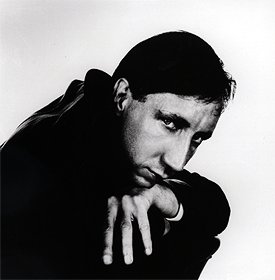INTERVIEW: Pete Townshend
The Who's Songwriter Speaks About Current Projects, including The Who Reunion. (Eel Pie)
By: Alex Steininger and Sera McGovern

 |
| Photo by Matt Kent | |
Currently in the studio writing The Who's next album, which will be preceded by an American tour (that's right, The Who are going to tour again), as well as working on several other projects, The Who's Pete Townshend is quite the busy man these days. With no signs of slowing down any time soon, either.Pure and simple, he's a rock 'n' roll machine, built to express himself through his music, and entertain and touch the millions of fans he has amassed over the years. Despite his hectic schedule, though, he still took the time to answer several questions I had for him.
Alex: Avatar was recorded in the 70's. What contributed to the delay in it being released?
Pete: Excerpts from the first British music album dedicated to Meher Baba (which was called Happy Birthday) were released by MCA as Who Came First, but containing mainly tracks by me as a solo artist. Other musicians on that record were Ronnie Lane and Billy Nicholls. The three British Meher Baba group albums were never meant to be commercial releases, and neither is Avatar. There are only 2001 copies, so if you have one, you're lucky. There may be a reprint. But it's doubtful.
Alex: How do you feel Meher Baba speaks through your music today in comparison to Avatar in the 70's?
Pete: How do I know how Baba speaks through my music? It's always been a mystery to me how God works, especially God in Baba's human form. It would be arrogance and madness to imagine that I was a 'vehicle' for God's words and messages. However, I believe I hear His words in the words of other human beings, so maybe it's arrogant to be so modest?
Alex: You've been working on the Lifehouse Chronicles for nearly 30 years now. Did the drawn out time span help you realize your full ideas for the project or were there other reasons for its time span lasting so long?
Pete: I've been working on LIfehouse for 30 years on and off (mainly off). Lifehouse Chronicles took about a year. The time span has not helped me, but it has helped the audience to grasp some of the ideas contained in it.
Alex: Why did you decide to go through Best Buy for the American release of the Lifehouse Chronicles?
Pete: The Best Buy release is a limited edition, music demos only. I did it to reach the audience who do not want the bigger more comprehensive package (and thus pay more money), and of course those who do not yet use the Internet. Best Buy is a very powerful company now for artistic releases. They use them to drive their whole image. And for an artist like me it is closer to real patron-ism to deal with them rather than a big conglomerate who may have their own ideas about what I should be doing with my life and career.
Alex: Do you see anything in store for the Who after doing the House of Blues benefit shows in Chicago?
Pete: Lots!
Alex: Tell me about eelpie.com, your new online commerce site. Are you planning to release all your upcoming releases through that or are you still going to release material through a traditional record label?
 |
| Photo by Steve Garfinkel | |
Pete: This site is for everything I do. I will only got back to record labels if I really must. I am also going to repackage and sell bootlegs of my work to both discourage and encourage the bootlegger!Alex: On that same note, are you currently working on, or do you have plans for a new studio album?
Pete: Not solo. I am writing some songs for a Who album.
Alex: Do you have plans for an American tour to support it?
Pete: The Who will be touring America prior to making any album. This summer I expect.
Alex: Tell me about Scoops 3. Is there a tentative release date, tracks you're planning to include, or any other information or insight you'd like to give us into its development and release?
Pete: This is still a little in the air. The producer has had some personal problems and we slowed the whole business down to give her some space. So the next Scoop is as yet unfashioned. It will represent the closest thing to a new studio album for me. It will certainly contain brand new music as well as old demos and live material.
Alex: You're going to be part of an upcoming Storytellers on VH1. Are there any songs you plan to play or any stories behind the songs that you're planning on telling? Or will it all be impromptu?
Pete: No idea what I'm going to do yet. Probably songs from Lifehouse at Sadlers Wells.
Alex: How did you feel about VH1's portrayal of Keith in their Behind The Music program on him?
Pete: Never saw it.
Alex: Do you feel the Who should have stopped, or at least changed their name, after the death of Keith?
Pete: I did once. Now I do not think anything at all should have been done differently. We had to learn what we had to learn. Keith's death was a part of our lives. Those who suggest things should and could have been different are just living in the past. The Who are three old friends today, with one old comrade sadly passed away but fondly remembered. That's the reality of the so-called 'Who'.
Alex: How do you feel your career would have differed had John Entwhistle joined the Moody Blues and Keith stuck with Jeff Beck's Bolero?
Pete: What if I had joined the Rolling Stones?
Alex: What sort of impact did Keith Moon's friendship as well as musicianship have on your life and career?
Pete: Not always good I'm afraid. He was really funny and entertaining, but quite wearing. Like a great flame over an oil-gusher he burned out too quickly. His musical talent never got a chance to properly develop.
Alex: How do you feel about musicians such as Paul Weller and the Stooges now nearing retirement after building their careers almost solely because of you?
Pete: Everyone has heroes and influences. One of mine was John Lee Hooker; another was Mose Allison. They have both benefited from my adulation just as I have benefited from Paul Weller's and the Stooges'.
Alex: How do you feel about the current state of rock music? Are there any musicians that particularly interest you?
Pete: It passes. All of it. It cycles. All of it. But it is changing very fast and is very exciting right now. Music is not an unlimited creative form; it is a DOORWAY. I've said many times that pop music (rock's other name in my book) is vital, but like air rather than prayer. Thus, it is not 'low' popular art, but neither is it 'high' popular art like the best Randy Newman work, or Steven Sondheim. Pop and rock are most valued because they help us to live, not to rise-- just to get through the day. The strange thing is that human beings often make a great deal of what they call their 'special days' or 'special moments'. Seeing a nice cow on a drive home at the weekend in the rain. Being somewhere ordinary on a birthday or anniversary, and just being content with that. Knowing that solid joy of being with an old friend and knowing there is no one else who can make you feel so SAFE. If you hear a good song at a time like that it attaches itself to the moment and holds it all together in the heart and mind, like a perfect home movie. Nothing else does this quite as well. When we die, sadly those moments die with us. So pop is transitory.
 |
| |
Alex: Seeing as how you've influenced so many musicians in your career, whom would you label as your number one musical influence?Pete: Bob Dylan. He told me, I'm paraphrasing, that a folk singer is simply a man with a very good memory. I very much appreciate his memory. But I also appreciate his courage and invention. Number two has to be Brian Wilson. Number three Ray Davies who showed me there is an English way too. Lennon and McCartney? Of course, but I put them in with the previous gang funnily enough - with Rogers and Hart and Johnny Mercer. They seem to me to be from an earlier school. But that's just me. I love them of course.
Alex: How did your friendship with Eddie Vedder come about and will it extend into a musical friendship or collaboration?
Pete: He came to see me play. At the time he was interested in developing Quadrophenia as some kind of stage vehicle. We became friends because he listens to me when I speak. I just love that! I also admire the way he lives his life. He values friendship and love, and gives those around him space.
Alex: Regarding your production of The Iron Giant -- do you have an interest in animation or did you come about that project solely because of the novel?
Pete: I love animation, but I wanted the film to be a musical. That didn't happen, but I'm still immensely proud of what has become (perhaps) the last true cell-animation film to be made on a big budget. We shall see.
Alex: Do you have plans for similar projects in the future?
Pete: I would like to see a film made of Lifehouse. I have dozens of ideas. In fact I'm about to break a long-held rule and going to start making my own films. I think most film directors are a little strange, so I will have to be careful.
Alex: Also, what happened to the The Iron Giant opera you were working on? Did it not get completed on time or did you scrap it all together?
Pete: It is still in development and I hope soon to premiere it at Birmingham Symphony Hall.
Alex: On a lighter note, are you still banned from Holiday Inn?
Pete: Of course not, if I ever was. Maybe I was banned from one or two of their famous motels, but you know it's important to say that when we say we often 'hated' hotels, because they were a cold component in our lonely lives, we also appreciated their comfort, the clean sheets, the maids who cleaned, the people who brought food to our rooms, who prepared it, the people who made sure we had rooms in the first place. We're not stupid or ignorant. We were too young and spoiled to know any better at the time, so sometimes we made trouble. It was the people I've just mentioned who suffered. I'd like to apologize to them now, and tell them that whenever I see a Holiday Inn sign I feel WARM... there must be a solid piece of American travelling salesman in me. I suppose that's what we were, travelling salesmen.
This interview took place Thursday, February 24, 2000

